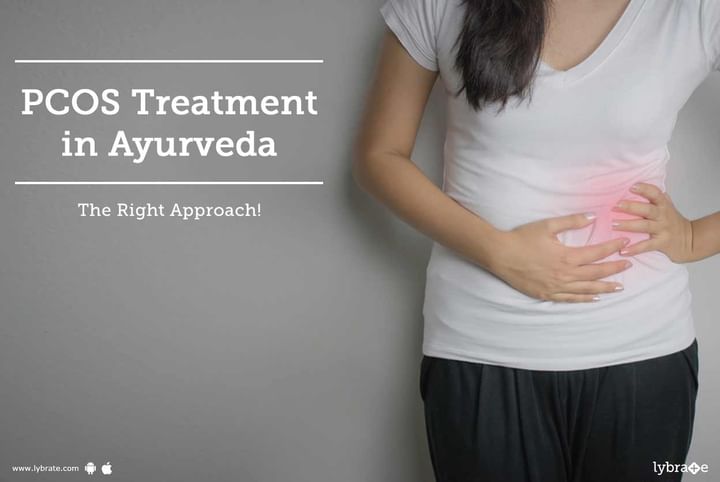PCOS Treatment in Ayurveda - The Right Approach!
Are you suffering from polycystic ovarian syndrome and are looking for an ideal remedy? Polycystic ovarian disease or PCOD is a common female health condition. It is a complex disorder and involves several factors which include insulin resistance, obesity, irregular menstrual bleeding, insufficient ovum production, and abnormal menstrual cycles. PCOD commonly occurs during the reproductive age of a woman and accounts for being a major cause of infertility.
According to Ayurvedic principles, PCOD occurs primarily due to the imbalance state of your doshas. The dosha vaishanmya is linked to the symptoms of PCOD, and the relationship between the doshas and lakshans is permanent.
POLYCYSTIC OVARIAN SYNDROME (PCOS) AND HAIR LOSS
PCOS can cause hyperandrogenism – where your body produces too many androgens (male hormones). Androgens are naturally found in all women. They affect the degree and frequency of bleeding during your menstrual cycle and can also cause acne and oily skin. However, if your hair follicles are sensitive to androgens they can also decrease the growth of hair on your scalp and increase the growth of hair on your body. This is especially true if you have excessive amounts.
Follicle sensitivity is not simply ‘caught’ or randomly acquired. It’s genetically inherited and has been there since birth. If you have little or no hair follicle sensitivity, your hair may not be very affected by extra androgens. But normal or even sub-normal amounts of circulating androgens can cause hair loss if your follicles are very sensitive to them.
Treatment
PCOD is associated with stri beeja and rajah formation, along with medhodhantu to some extent. These should be attended to while the condition is being treated. The Ayurvedic treatment of PCOD aims at providing ideal care by correction of the ama dosha. By this, you achieve koshta shuddi, which in turn regularizes your tridoshas. The way or approach towards Ayurvedic treatment for PCOD includes the following:
- Treatment of agnimandya at both dhatwagni and jataragni levels.
- The alleviation of sroto avarodha is an essential part of PCOD treatment using Ayurveda. You should undertake purificatory therapies which are based on the grade of your doshic vitialation, and the exact area of affliction. These should be followed by rasayana drugs, which are free radical scavenging agents.
- The regularization of the apana Vata is essential as well. You must firmly avoid vihara and kaphkara ahara.
- Yoga and meditation are very important for the Ayurvedic treatment of PCOD. You should perform yoga asanas regularly. Some of the ideal postures for PCOD management include sarvangasana, matyasana, and shavasana.
- It is also very important for you to work out regularly, undertake different physical exercises. This will make your overall life much healthier.
- You must follow a healthy, balanced diet regularly, which should consist of fresh vegetables and fruits.
Ayurvedic herbs for the treatment of PCOD
- The varuna crataeva nurvala is an effective herb which helps in the clearance of channels, which reduces your cyst’s size.
- You can try hareetaki because of its amazing laxative effects, which reduce the morbidity of your body.
- Bilva or aegle marmelos heps in reducing the size of your growth, via its digestive effect.
- Strotasshuddhi is required and herbs likes Punarnava, kaphhar medicines are advised.
- Phytooestrogen sources and female tonic Shatavari is very much advised.
- Agnimantha, similar to lions. Lake er dhareyjata
- Guduchi is another effective remedy for PCOD and has a rejuvenating effect.
- Kanchnar is the drug of choice for Thyroid as per AYURVEDA, Strotasshuddhi is done by using Trikatu, Punarnava and other medicines. Rasayan like Shatavari are advised for enhancing female hormones.
If you are experiencing any symptom of PCOD, it is recommended for you to visit an Ayurvedic practitioner. This ensures that proper diagnosis is undertaken so that you can start treating the condition as early as possible. In case you have a concern or query you can always consult an expert & get answers to your questions!



+1.svg)
